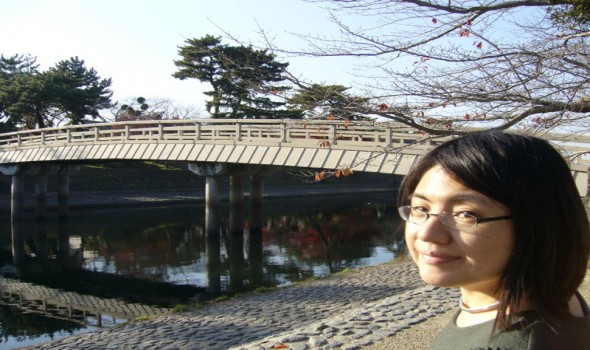Eiri Ohtani on: the Migrant Voice Spring conference
Eiri Ohtani on: the Migrant Voice Spring conference

Actually, what are our stories? Reflection on the MV conference The conference was two days of intensive listening and talking. It was great to see lots of people from Glasgow and Birmingham where there are already MV networks. On Day 1, the “professionals” led the way while much of Day 2 was spent discussing what we hoped to do as members of Migrant Voice. I will leave it to Migrant Voice staff to give you more details about what was said during the conference. The conference title was 'Who's telling our stories? Unheard voices; mobilising migrants to speak up'. Actually, what are our stories? I now have to ask a couple of awkward questions here. Take, for instance, the tips on getting more coverage in the media. We were advised that the journalists often need be spoon-fed a story (easy to digest, new and interesting etc), not an issue. But does that mean that we need to engineer stories that the journalists want to hear? And what do we do if our lives as migrants are too boring or too complicated that they don’t neatly fit into a story? If we try to give journalists what they want to hear in our effort to gain visibility, we might have to churn out, yet again, stories about “migrants overachieving against all odds”, “abject and wretched victims of the asylum system” or “exotic dancing, singing and food at a cultural event”. These stories have certain inherent risks: they can easily reinforce the dominant narrative of deserving vs underserving migrants. They can be easily twisted into something entirely different: “migrants stealing our jobs by doing both day and night shifts!”, “benefits scrounging asylum seekers who refused to go back home!” and “communities so entrenched in their cultural practice and language that they refuse to integrate!”. Stories might be just words, but we are real people and the impact of this narrative is painful. The problem with these stories - whether positive or negative - that carry simple, easily digestable messages is that they reduce migrants to a sum of natural attributes of goodness or badness. In other words, they fail to portray migrants as people, who are all too human, who are living through a social phenomenon of migration in a variety of ways. They encourage an attitude that does not see us as people, because we become abstracted into figures of pure goodness or badness. As a result, these simple stories foreclose possibilities of dialogues and negotiation and of being influenced and changed, and meaningful interactions that must be the foundation of any social co-existence. After all, why reopen the stories whose conclusions we have already been told about and whose conclusions we can’t change? Experiences of migration both for the migrants and the host communities are complex and changing. Yet those simple stories of good or bad obscure the diverse range of experiences which make up this messy, confusing, sometimes exhilarating and sometimes enraging phenomenon of migration. Perhaps those who can and do shout louder – be they the politicians, the media commentators, the community leaders, charity spokespeople or those with very strong views - take the silence of the majority in the middle as a vacuum, and are sometimes content to play out the battle of good vs bad as if there are only two options the rest of us are allowed to align ourselves with. This is not a dialogue but a shouting match, where there is no meaningful interaction. A true dialogue will be messy and confusing, sometimes exhilarating and sometimes enraging – just like the experience of migration. The question is, are we brave enough to start grappling with this messy business of dialogue? Are we going to have a democratic dialogue where lots of different stories and voices are allowed? Or are we going to seek an easy way out of this by coming up with an unanimous and unified “message”? If so, how are we going to agree on this “message”? Will our stories be policed and censored so that they always carry the same “message”? And do we believe that a simple “message” will solve all the complex problems surrounding our relationship with migration? As for me, I will choose the messy route myself. Eiri Ohtani is the Co-ordinator of the Detention Forum and is also a trustee of Migrant Voice. She writes here in her personal capacity.


